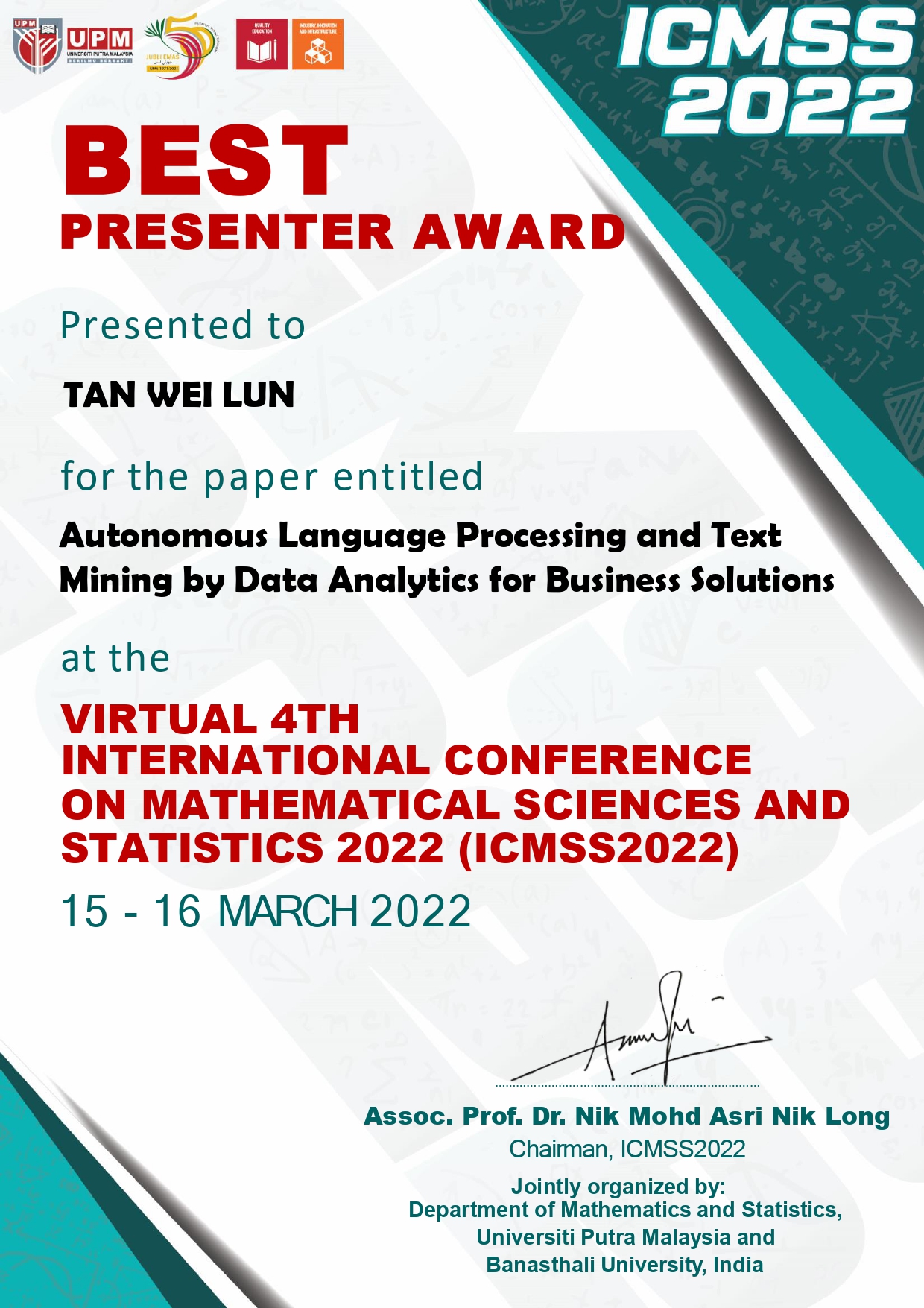
Dr Tan Wei Lun wins Best Presenter Award at ICMSS2022

It was a celebratory moment for UTAR Lee Kong Chian Faculty of Engineering and Science (LKC FES) academic Dr Tan Wei Lun when he won the “Best Presenter Award” at the virtual 4th International Conference on Mathematical Sciences and Statistics 2022 (ICMSS2022), held from 15 to 16 March 2022.
Themed Towards Intensified Research in Highly Mathematical and Statistical Based Technology, the two-day virtual conference was jointly organised by the Department of Mathematics and Statistics of the Faculty of Science, Universiti Putra Malaysia together with Banasthali University, Jaipur, India.
The international conference served as a forum to gather mathematicians and statisticians from all over the world to interact, exchange ideas and share their knowledge and recent findings. In addition, the conference also aimed to bridge the gap between the theory and application of mathematics, statistics and other related areas in order to encourage multidisciplinary collaborations.
Dr Tan’s award-winning paper was titled Autonomous Language Processing and Text Mining by Data Analytics for Business Solutions.
He shared, “Speech analytics solution is a technology that enables a company to discover customer’s patterns and insights by analysing relevant data such as recorded audio files or phone conversations. The accuracy of speech recognition or speech-to-text transcription has been a challenge all along. This paper aims to present a text classification model for the call transcriptions based on the context and to improve the accuracy of Google Speech API in the Malay language.”
Dr Tan added, “In this study, the accuracy of speech-to-text transcription is measured by word recognition rate and an accuracy scale. Time-cut-point and audio speed are the factors investigated to determine whether these factors affect the accuracy of text transcription. The results obtained from different time-cut-point and audio speed settings have been studied to identify the best combination. Furthermore, the pre-processed text data is utilised to train the text classification model using Support Vector Machine and Naive Bayes algorithms.”
He also explained the approaches to improve Google Speech API, “The first approach is to apply speech adaptation, which is the function made by Google. However, it showed that the accuracy dropped when 250 words were added to the speech adaptation, or when the audio speed was lowered. This is because the word error rate for both methods has increased. In the second approach, removing speech adaptation and lowering audio speed simultaneously caused a decrease in word error rate, hence the accuracy increased. In a nutshell, the Support Vector Machine has a better accuracy score for text classification compared to Naive Bayes algorithms. As a result, short time-cut-point with a normal speed of audio file showed a positive impact to improve Google speech-to-text API, along with Support Vector Machine being more suitable for the classification model.”
© 2022 UNIVERSITI TUNKU ABDUL RAHMAN DU012(A).
Wholly owned by UTAR Education Foundation (200201010564(578227-M)) LEGAL STATEMENT TERM OF USAGE PRIVACY NOTICE